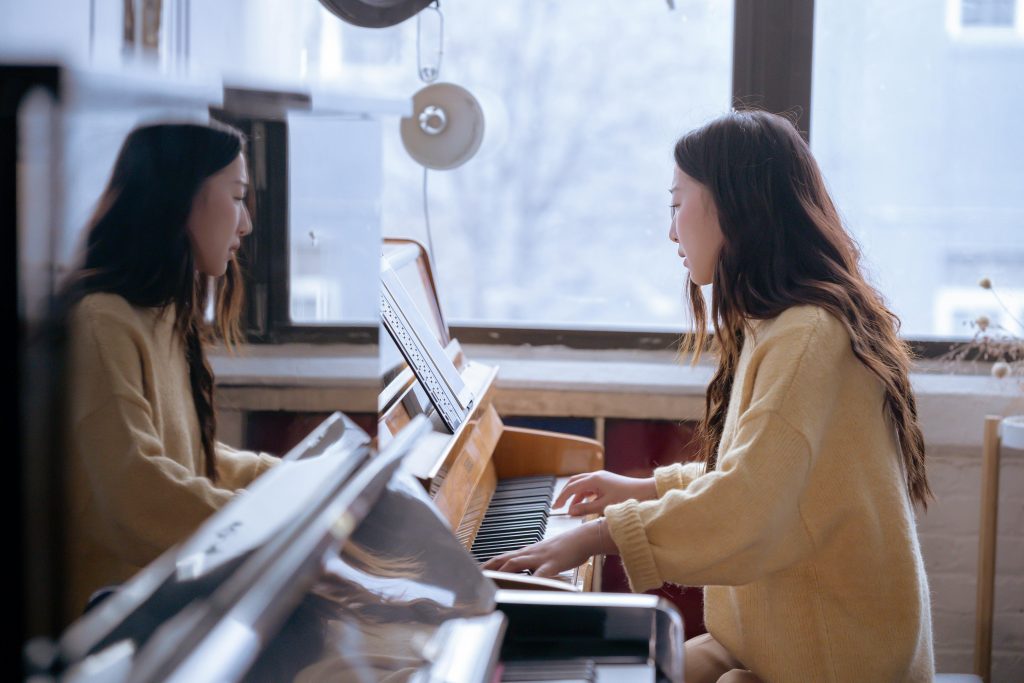Buying a piano is a significant investment, both financially and emotionally. Choosing the right instrument can affect your musical experience for years to come. That’s why the issues of choosing the right piano / grand piano should be properly considered. And do not leave it to chance. The following list of things to look out for when buying a used piano can help you with this.
1. Room size and acoustics
The piano should be matched to the size of the room in which it will stand. Small rooms work better with smaller piano models to avoid dominating the sound in the space. Thus, in a children’s room that is not large (about 12 m2), a non-large piano up to 120 cm high will work better. For larger rooms, it is possible to choose larger instruments, including cabinet or salon pianos. It is rather not recommended to buy concert pianos for houses or apartments, unless you have a really large space or like loud instruments.
Room acoustics are crucial. Elements such as curtains, carpets and furniture can help absorb and disperse sound. Which is important in the case of loud instruments. In general, in cases of large rooms or those with difficult acoustics, don’t hesitate to ask a specialist for help. It doesn’t necessarily have to be an acoustician, ask a salesman from a piano store for help first. He will not only help you choose the right piano, but also advise you on how and where to best set it up.

2. Comfort of playing
The location of the piano in the house should provide comfort. It is important that the place where the instrument stands is a place where the pianist can and wants to spend time playing every day. Even if he plays the same part 20 times for 1.5h. Some people prefer to place the piano in a central location in the house. However, this should not be a rule, especially if you buy a piano for a child to learn to play. Then it is good to determine together with him in which part of the house he will be comfortable practicing on it.
At this point it is also worth mentioning the possibility of buying a piano equipped with a silent system. A system that allows quiet playing with headphones. Such a solution can work especially well when we live in a block of flats and do not want to abuse the patience of our neighbors, or we have a very novice pianist at home.
3. Technical and aesthetic aspects of the piano
When choosing a piano, it is worth paying attention to such elements as:
- dynamics – volume range,
- selectivity – the ability to distinguish individual sounds,
- tone color – an individual characteristic of each individual piano, and
- the feel and resistance of the keys while playing.
Each of these elements affects the feeling of playing and should be adjusted to the user’s personal preferences. To check them you simply need to play the piano before buying it. Make appointments with sellers for trial games and test different instruments. For such tests, you can also take another player with you to get the opinion of a neutral person.

Although the appearance of a piano may seem less important than its sound characteristics. However, for many people it is an important element that influences the choice of an instrument. Therefore, it is worth choosing a piano that not only sounds, but also looks as expected and blends harmoniously with its surroundings.
4. Financing and guarantee
Pianos and pianos are usually expensive investments. Although there are decent used pianos up to PLN 3,000, the purchase also very often involves some compromises. Such pianos may not quite meet all our expectations, whether acoustically or visually. If you don’t know how long your adventure with the piano will last, consider the options of renting it or renting it with a buy-back option. You can then try out a more expensive piano (or even several pianos) in a home environment. You can learn more about piano rental and its approximate costs in our article, and find pianos for rent here. If you are determined to buy a piano, but your budget does not allow you to choose your dream instrument look for pianos for sale with installment options. It’s worth considering these options to adjust the choice of the right piano to your financial possibilities.
If you have not dealt with pianos so far, it is worth considering buying such an instrument with a warranty. The warranty ensures that the purchased piano will be in excellent condition and in case of any problems, the customer has the right to service or repair. In case of any problems with the instrument, the customer can count on the seller’s assistance, which further strengthens the positive feeling and comfort of the purchase.
5. Suitable conditions for the piano
At the very end, we should also mention the proper storage conditions that a piano requires. These should not be overlooked, as these few things will allow us to enjoy a working, good-sounding instrument for a long time. And in the future, when possibly selling the piano, it will allow us to get a better price.
In conclusion, the purchase of a piano requires a thoughtful decision, which should take into account both technical and aesthetic aspects. As well as the personal preferences and needs of the user. Therefore, it is important to approach the choice of a piano with caution, taking the advice of specialists and testing different models to perfectly match the instrument to your own needs and abilities.


